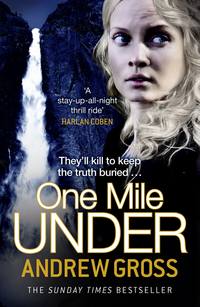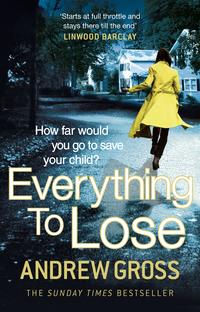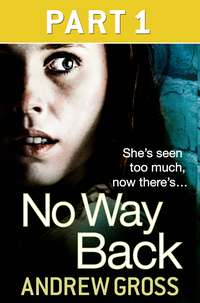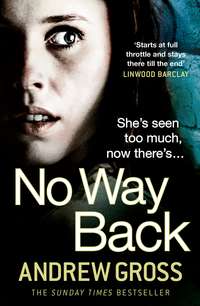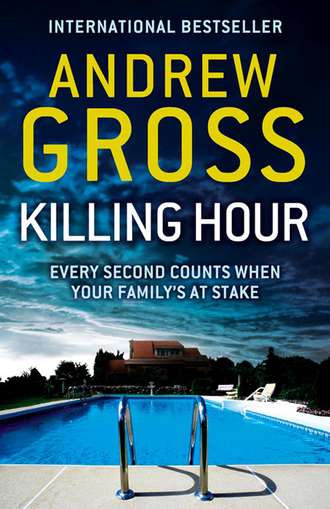
Полная версия
Killing Hour
It took a couple of minutes, but finally a woman came back on. ‘This is Katie Kershaw. I’m an assistant producer in the newsroom.’
‘Katie, hi. My name is Jay Erlich. I’m a doctor from back in New York, and I’m the uncle of Evan Erlich. Your station did a story on him.’
‘Yes, of course. That was terrible.’ She knew who he was immediately. ‘We would have followed up, but it’s a policy here, for family reasons, we generally don’t report on suicides.’
‘I guess I can understand that,’ I said. ‘But listen, Ms Kershaw . . . I think your station is missing the real story behind what happened with Evan.’
Two hours later a reporter named Rosalyn Rodriguez and a colleague with a handheld camera knocked on Charlie and Gabby’s door.
Gabby seemed lifted. She had changed, washed her face, and applied a little makeup for the first time since I’d been there. Finally someone was going to take their side.
Charlie seemed a bit edgy. ‘Are you sure this is the right thing?’
‘You always want to do nothing,’ she said to him. ‘You’re always afraid the state will find us. They’ll discover your brother is helping us with the rent. Our disability will be cut. Yes, I want to do this. It’s for our son, Charlie!’
When the reporter arrived, we all sat in the small living room. Her questions closely followed the narrative I had given their producer on the phone.
How did you first find out what happened to your son? What do you feel about what happened? Do you think the doctors at the hospital bore any responsibility? Do you think your son belonged in a more restrictive facility?
‘That’s what they promised us.’ Gabby nodded. ‘Yes.’
Charlie just sat there, not saying much.
Gabby started with Evan being released from the county psychiatric ward after just three days. Three days after having attempted to acquire a gun. How they were being stonewalled from getting even the simplest answers to their queries. How the Harbor View facility didn’t even have a clue what kind of patient they were dealing with.
I jumped in and said, ‘The police . . . they just seem to have washed their hands of all this. They want to get rid of the case as quickly as they can. Maybe it’s because my brother and sister-in-law aren’t important here. They live on welfare. To be frank, they’re concerned that because they draw their income from the state, everyone’s just stonewalling them in the hope it will all just go away. They’re convinced they have no right to look into their son’s death.’
The reporter glanced at her cameraman, basically asking, You getting this?
‘Look, I’m a doctor for God’s sake,’ I said. ‘Wouldn’t you want to know how a twenty-one-year-old kid goes from twenty-four-hour suicide watch in a locked cell to an unprotected halfway facility in just a matter of days – and then ends up at the bottom of a six-hundred-foot cliff?’
At this point, I no longer cared whose feet I was stepping on.
‘All they’re getting from everyone is just, We’re so sorry. That’s tragic. Well, sorry simply isn’t enough. They want someone to take responsibility. They want some answers. You’d want that if it was your family, wouldn’t you, Ms Rodriguez?’
‘Yes, I would want that.’ The reporter nodded, the cameraman shifting to get her reaction. I could see it was affecting her too.
She asked us for names. And we gave them to her.
The doctor, Derosa, who was clearly ducking my calls. And Anna Aquino, who ran the care facility Evan had been dumped in.
And Detective Sherwood.
She promised she would contact the hospital and speak with officials there.
‘God bless you.’ Gabby wrapped her arms around her and thanked her. ‘For whatever you can do.’
‘I want them to know they can’t just shit on us,’ Gabby said after they left, coming up and giving me a grateful hug. ‘We may be poor, but our son deserves some answers too.’
Charlie sat there, distracted, unconvinced. He picked up his guitar and strummed a few chords. ‘You’re going to go home, Jay, but we’re still here. These people own us. Maybe we just should have let it lie.’
Chapter 14
That night, Gabby asked me over for dinner.
I came up with maybe a dozen reasons why she shouldn’t go to the trouble, but she insisted.
‘You are here, Jay, and I’m allowed to invite you to our house. Maybe it’ll take my mind off everything.’
Sherwood had called earlier, saying we could come and look at Evan’s body tomorrow, which didn’t exactly elevate the mood.
In spite of it all, she threw together a pretty good meal.
A paella of chicken, sausage, and shrimp on a bed of yellow rice. I bought a local sauvignon blanc from a store called Scolari’s Market.
‘What the hell,’ Gabriella chortled, pouring a glass for herself as well. ‘I think tonight God will forgive me if I drink a little too.’
We ate and polished off the wine, and despite all that was going on, the mood managed to stay upbeat and light. We talked about Kathy and my kids. How adult they had become. I always tried not to build them up too much. Sophie and Max, who took AP courses, played on the lacrosse and field hockey teams, volunteered at food banks, went to the Bahamas on spring break. Even in their most ordinary moments, they had more to show than Evan had accomplished in his life.
Sooner or later, as it always did, the conversation came around to our dad.
Leonard the Good and Lenny the Louse, as he always referred to himself.
You never quite knew which one you would get.
No one could charm a room like my father. No one could be warmer or more captivating.
And no one could cast you out as quickly when he suddenly felt betrayed.
He always surrounded himself with a constantly shifting circle of wealthy, influential people: models, Wall Streeters, retail executives, movie producers, not to mention his inner circle of rakes and hangers-on, who eventually sucked him dry.
Dad’s charisma was boundless, but his temper was even larger. And it always seemed to rear up after a couple of scotches. He would elevate brand-new acquaintances as his closest friends in the world – true geniuses, movers and shakers, even those who it was clear only wanted something from him.
The same people, down the line, who, when the tide eventually turned – and it always did – were banished from his sight.
His biggest customers – not just lowly buyers but upper management, even store presidents – loudly thrown out of his showroom and told to never come back. His panicked salesmen scurrying after them, feverishly apologizing. They even came up with a logo that poked fun at his legendary outbursts: Lenny Didn’t Mean It, it was called.
He would introduce me to his pals as ‘the Remarkable Dr Jay’, even as a kid. And I had to admit it always made me feel like the most important person in the world. Growing up, he would take me out for dinners with his drop-dead girlfriends at Gino’s or to sit at the bar with his Irish bookies at PJ Clarke’s.
Then he wouldn’t call for weeks, completely forget important events. Disappoint me terribly.
I never understood what was behind my father’s rage. The truth was, if he were diagnosed today, maybe we would know. He ran away from Brooklyn in the forties and headed out to Hollywood, where he took up with starlets and ingénues and managed to become the right-hand man of Louis B. Mayer, the head of MGM. His homes were always filled with bikinied beauties in the pool and glamorous people dropping by. Opera blasted over the beach on the stereo.
He made millions over the years – and gave back every penny.
At the end, his business partners grew shadier and shadier, as the glamour crowd wanted nothing to do with him. The Wall Street honchos became shiftier and the retail bigwigs turned into low-priced discounters.
There was the suspicious fire in his warehouse in Brooklyn. The SEC was on his back over cash that had disappeared from the firm, as well as the IRS over back taxes.
He became sort of a sad figure, driving around in his ten-year-old Mercedes, scrounging around the city’s flea markets, arriving unexpectedly at the house with some bizarre new ‘find’: paintings no one wanted or retro board games for the kids missing the key pieces. ‘Lenny Presents!’ they grew to call him.
We managed to become close in those years.
Ten years ago, he downed his usual two Rob Roys at a local watering hole in the Hamptons, where he still had a small house near the beach. The bartender remembered him going on about some new idea. A couple of women were at the bar, but they didn’t want to be bothered by him. He threw a twenty on the table and waved good-bye.
The next morning they found his car at the bottom of Shinnecock Bay.
After dinner, we sat around the living room, Charlie strumming on the guitar. ‘Evan was getting pretty good himself,’ he said with pride. ‘Even better than me!’ He picked through versions of ‘Get Back’ by the Beatles, The Byrd’s ‘Mr Tambourine Man’, ‘White Room’ by Cream, Rod Stewart’s ‘Maggie May’.
‘Jay . . .’ His eyes lit up. ‘You remember this?’ He sang, ‘Just when you say your last good-bye / Just when you calm my worried fears . . .’
I did recognize it. It was the song he had recorded back in LA. More than thirty years ago. ‘One Last Thing’.
‘Just when the dawn is breaking / There’s always one last thing . . .’
He always played the same two verses. Only them. To this day, I wasn’t sure I’d ever heard the whole thing through.
Charlie cooed, happily. ‘Ooooh, girl, it’s always one last thing . . .’
He put down his guitar. ‘You know it got to number twenty-nine on the charts,’ he said with his ground-down grin. ‘In 1973. Of course I was crazy as a loon back then. Not to mention I was taking LSD like vitamins. I got to thinking my record company was trying to screw me. Hell, I thought everybody was trying to screw me then . . .’ He cackled, a glimmer in his eye.
‘Hey, check this out, Jay!’ He went over to the chest against the wall and came back with a bulging photo album. It was stuffed with artifacts from his past: pictures of him, of him and Dad in happier days at his beach house. Charlie growing up in Miami in the sixties, before his crazy hair and wild eyes.
He laughed, ‘I was so deluded on acid I told them I would burn down their fucking building if they didn’t send me out on tour. And you know what they did? They pulled the record! Right off the fucking airwaves.’ He snapped his fingers. ‘Just like that! And you know what? I could hardly blame them. Who would put a nut job like me out on the road?
‘But you know what, Jay? Maybe if I hadn’t been off my rocker back then, you might be sitting here with Rod Stewart. You know you wear it well . . . In a mansion in Brentwood, not this shit hole here, right? Look . . .’
He opened the album and pushed it over to me, a soft smile lighting his eyes.
It was a clipping from an old Billboard magazine. Yellowed, dog-eared, protected in a plastic liner. Top Singles for the week.
I noticed the date: October 1973.
At #1 was ‘Angie’ by the Rolling Stones. Midway down, I saw a red, drawn-in arrow marking number twenty-nine:
‘One Last Thing’. Charlie Earl.
‘Hey!’ I grinned. I’d never seen this before. I never even knew if I truly believed him, all the times he talked about it.
Charlie winked. ‘Not bad from your loony older brother, huh?’ Then his grin seemed to wane. ‘Hell, who’s kidding who, right? Biggest moment of my life, and I fucked up the whole damn thing. Guess that’s where all our similarities end, right, Jay?’
He picked up his guitar again.
‘Charlie, what do you want me to do?’ I asked him. I came over and sat across from him. ‘About Evan. You want me to find you a lawyer? You want to try and make a case against the hospital? You know I’m going to have to go back in a couple of days.’
My brother nodded, scratching his scruffy beard, pushing his graying hair from his eyes. ‘We don’t want a lawyer, Jay. People like us can’t make waves. You go. Gabby and I, we appreciate what you’ve done. You just being here.’
I patted him on the shoulder and got up. ‘I’m going to make a call.’
I went outside and stood against the building in the cool night air. Their apartment faced a grassy courtyard. Beyond it was a darkened street. The light from a single streetlight cast a glow.
People were arguing loudly in an apartment across the courtyard.
I called the house.
‘Hey, how’s it going?’ Kathy answered, happy to hear my voice. ‘How are Charlie and Gabriella?’
‘The poor kid should never have been released.’ I exhaled. ‘You should see where they put him.’ I took her through my day, my frustrations. ‘All the doctors here are just stonewalling us.’
‘You’re going to be coming home in two days. What are you going to do, Jay?’
‘All they want is an answer, Kath. Someone has to take responsibility. That’s what I’m doing.’ I told her about visiting the rock and the halfway house. Then the TV station.
‘I warned you, didn’t I,’ Kathy said, a little in jest, but a little in truth too, ‘that you’d get drawn in.’
I was about to tell her she was wrong. This time, I wasn’t being drawn in. I just had to help get them through some things.
That’s when I noticed something out on the street.
A car, black, or dark blue maybe, parked beneath a tree. A VW or a Kia or something. A hatchback.
And someone sitting in the driver’s seat. The person’s face was hidden under a cap. I couldn’t even tell if it was a man or a woman, but the window was cracked slightly and the person was smoking.
And they seemed to be watching me.
‘Jay . . .?’
Kathy’s voice brought me back. ‘Sorry . . .’ I said, ducking back under the carport.
‘I said that Maxie’s coming back tomorrow. I’m picking him up at school. And Sophie said she texted you . . . She’ll call them later today.’
‘Okay . . .’
I heard an engine start up and glanced back and saw it was the car I’d been watching.
The headlights flashed, momentarily blinding me. I was about to turn away when the driver’s window rolled down and the person behind the wheel, eyes still seemingly fixed my way, flicked their cigarette onto the street.
In my direction.
Then they rolled up the window and drove away.
The whole thing had the feel of some kind of strange warning.
‘Jay, have you even been hearing me?’ Kathy sighed, frustration in her tone. ‘You know, you’re not going to change them. You know that, don’t you?’
‘Yeah, I know that, Kathy.’
I stepped out from under the carport and watched the car drive away down Division Street. ‘But what happened to Evan was wrong, Kathy. And when I get back on that plane Thursday, what the hell else have they got?’
Chapter 15
‘That was nice,’ Gabby called from the kitchen after Jay had left, finishing cleaning up.
Charlie had picked up his guitar again. ‘Yes.’ He strummed a few chords distractedly. ‘It was nice.’
‘Here, do something . . .’ Gabby said to him. ‘You’re always in your own world. Make yourself useful.’ She bundled up a bag of trash and handed it to him to him to take out.
‘All right.’ He put down the guitar and, without objecting, took the bag outside to the plastic trash bins on the side of their apartment.
She was right, of course, he decided – it was nice to have Jay out here. To feel they were close again. Like time had taken them back to a simpler and better day. Even if . . . Suddenly the reason Jay was there came back to him.
Even if it was because Evan had died.
He lifted the plastic trash cover and was about to drop in the bag when . . .
He barely noticed it at first.
It was just lying there, on top of yesterday’s trash. Staring back at him – as if alive.
And in a way it was alive!
‘Gabby!’ he tried to scream. ‘Gabby!’ dropping the trash bag, but nothing came out.
Only a tsunami of shock and overwhelming confusion sweeping through him.
It was a black Nike sneaker.
His heart came to a stop. Evan’s sneaker.
The one he’d been wearing up on the rock the day he died.
The one they never found.
Hands tingling, Charlie gingerly picked it out of the trash bin. Yes, he was right – he was sure!
It was Evan’s sneaker.
What could it possibly be doing here?
At first, his heart almost exploded. Overcome with joy. This proved it, didn’t it? What he’d felt all along? That Evan wouldn’t have killed himself.
He turned to shout: Look! Look what I found.
Gabby!
But then he stopped. The elation throughout his body shifted to fear. He scanned around, expecting someone to rush out of the shadows at any moment. But no one was there.
He held the sneaker like a priceless relic, tears welling in his eyes.
He knew he couldn’t tell anyone. Not Gabby – poor Gabby – who would die herself just to see this.
Not even Jay.
No, no one could see this. Because he knew who had put it there. The past had brought it. Just as he always feared.
The past.
That’s what it meant.
That the past had found him.
And there was nothing he could do about it. Nothing he could do to stop it now.
Chapter 16
I took Charlie and Gabby to view Evan’s body the next day, and it was one of the toughest things I ever had to do.
He had a deep gash in the back of his head. Some reconstructive work had been needed. He had a calm look on his face, that same little smirk, like he knew more than the rest of us, seeming finally at peace.
Gabby kissed him all over his face and hands and said her good-byes. Charlie seemed almost wary, saying once with his eyes wet, ‘I forgive you, son.’
The decision was made to cremate him later that afternoon.
It was a long, quiet ride back to Grover Beach, and Gabby spent much of it in the back weeping. Charlie just sat there with her, holding her hand. I got off the freeway and drove down the hill to drop them back at their apartment.
A thick manila envelope was leaning against the front door. It was from the county hospital.
Evan’s doctor’s report.
I didn’t know if it was pressure from the TV station or from Janie, the nurse I had spoken with. I was just happy to see it there.
I asked to read it over first and Charlie and Gabby agreed. I took it back to the hotel, but instead of going to my room, I ordered a beer at the bar and took it out to the grounds in back that ran along the bluffs overlooking the ocean. People were always milling around, observing the gulls and pelicans that congregated on the cliff, scanning the waves for a meal. I’d sat out there to clear my head a couple of times before.
I found a bench and took out the thick report. Central Coast Medical Center. Patient: Erlich, Evan. Patient #3233A32.
It began with his admitting evaluation. August 23. It stated that the patient had attempted to purchase a gun and that his parents had called the police. That Evan had demonstrated violent behavior toward them. There was a box with various courses of action:
Intent to harm self and Intent to harm someone else were both checked.
The report went on to say that ‘the patient was admitted in a hostile and agitated state and had exhibited extreme physical behavior toward his parents and resistance to officers on scene and was unresponsive to efforts to calm him’. He was sedated: Risperdal, Klonopin, and Ativan. He was placed in a treatment cell and put under full observation.
Day two, Evan was still a mess: ‘Patient appears calmer, responsive, but remains agitated and depressed. Admits to depression, feelings of isolation, hostility toward family, but has not taken his medicine in weeks. He feels the need to get a gun to protect himself from them.’ There were further observations with comments like ‘agitated’ and ‘anxious’. ‘Still having thoughts of suicide.’ ‘Protective watch continued.’
As well as the heavy doses of sedatives and benzodiazepines.
I put it down, my gaze drifting out to the congregation of gulls and pelicans on the rocks.
‘Hey, friend, got a buck for an Iraq War vet?’
A panhandler had wandered up to me in disheveled clothes and carrying a hand-scrawled cardboard sign.
IRAQ WAR VET. NEED FOOD.
‘Any chance you can help me out, chief? It’s Veterans Day tomorrow. Can you spare me something for a meal?’
I looked up at him. ‘Veterans Day’s in November, chief. Nice try.’
‘Dude, every day is Veterans Day,’ the guy grinned, ‘when you’re looking for something to eat.’
Our eyes met and the spark of humor in his eyes along with his gaunt, haggard appearance made my resistance soften. I thought of Charlie, who had been down and out for many years himself. I reached into my pocket and came out with a five, and handed it to him. ‘Here. You take it easy, man.’
‘Dude!’ His steel-gray eyes were suddenly bright and he cocked a hand at me and pointed, as if aiming a gun, making me wonder if he had ever served a day. But I wasn’t caring. He backed down the path with a grin, his oversized pants brushing the pavement, and waved back at me. ‘You have a good day now, chief.’
I gave him a wave in return, reflecting that the contrast in this town was startling. Beautiful homes, a stunning coastline. But also a kind of refuge for the down-and-out, whom life had passed by.
I smiled as the guy walked away, waving at me one last time. ‘See ya around.’
I went back to Evan’s report. I wasn’t sure what I was looking to find, but in the next two days there were pages and pages detailing how Evan had gradually become more responsive. Seroquel was added to his treatment, two hundred milligrams, a massive dose. By the third day it seemed to have done its trick and blunted his rage. ‘Patient now denies any real anger toward his parents.’ ‘Now admits the gun was meant for him.’
No kidding. He was a zombie, Anna Aquino said. Completely snowed.
By the fourth day, he had even begun to express remorse. ‘Patient indicates a desire not to return home as it is a volatile situation. It is suggested an intermediary living situation might be located.’
That made me angry. Anyone professional had to know the demons that were still lurking inside.
In the final pages, the report went on to note how Evan understood that he had to stay on his meds and even expressed a desire to get better. ‘Patient feels that the current environment at home may not be compatible with that goal. Social services is looking for an appropriate outside environment.’
Evan’s scrawled, semilegible signature was on the release form, along with Mitchell Derosa, Supervising MD’s.
Maybe Sherwood was right. Suicide or accident, Evan was dead. I was leaving in the morning. What did it even matter if the system had let him down?
The kid was crazy, delusional. He was talking to the furnace, for Christ’s sake.
The die was really cast the day he was born.
Chapter 17
I stopped off at Charlie’s one last time to drop off the report and say good-bye.
To my surprise, they had a couple of people over. Two of Evan’s friends: One was Pam, a cashier from the store where Evan had bagged groceries for a while. She had a row of hoops in her ear and wore one of those gold-plated necklaces with her name in large script.
Конец ознакомительного фрагмента.



